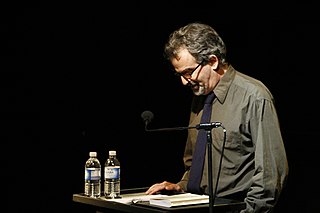A Quote by Masiela Lusha
There's always an added element of a poem when it's read aloud because then you can really hear the rhythm, and the cadence, and even the pronunciation sometimes adds another layer to the poem.
Related Quotes
Truly fine poetry must be read aloud. A good poem does not allow itself to be read in a low voice or silently. If we can read it silently, it is not a valid poem: a poem demands pronunciation. Poetry always remembers that it was an oral art before it was a written art. It remembers that it was first song.
The subject of the poem usually dictates the rhythm or the rhyme and its form. Sometimes, when you finish the poem and you think the poem is finished, the poem says, "You're not finished with me yet," and you have to go back and revise, and you may have another poem altogether. It has its own life to live.
There's something immediate about the experience of reading a poem - whether it's the music or some other element of it - that just seems to access another part of the brain. You know, Charles Olson talks about this transfer of energy that happens between the writer and the reader of the poem. I guess there's something essential to me about acknowledging upfront the immensity of it - the difficulty of it - and even allowing that to be the subject.



































